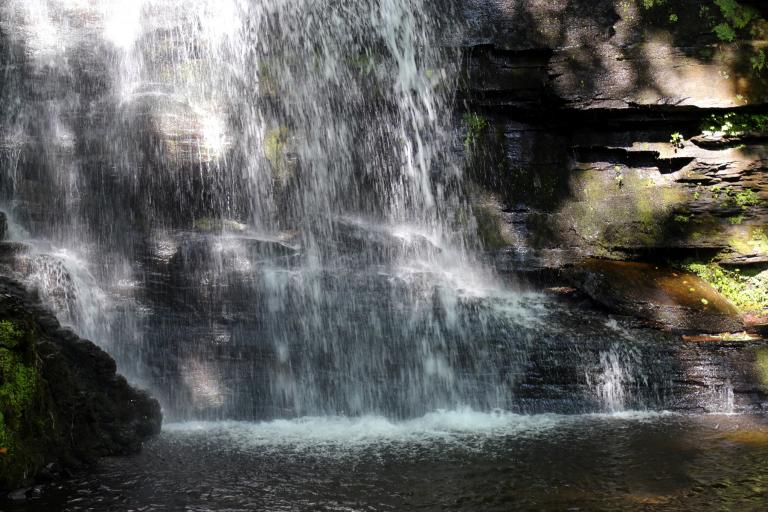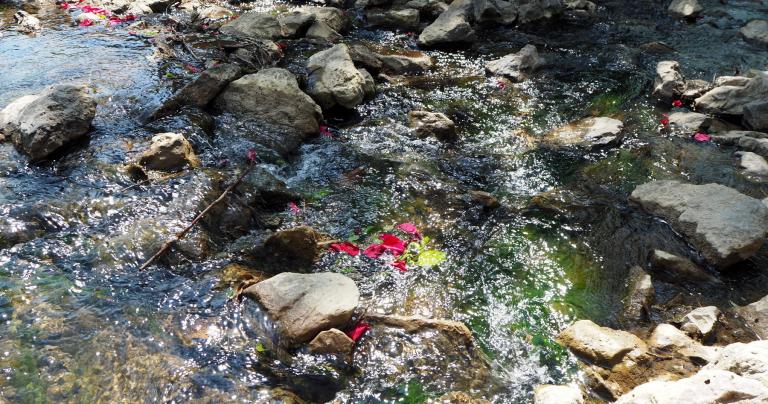The nature of the Gods is a mystery. We know some things about Them from the stories of our ancestors. We can learn some things through observation, logic, and reason. We can learn other things through our first-hand experiences of Them. But much remains beyond our knowledge, and most likely, beyond our ability to know.
Some of Their attributes are easy enough to understand: They are mighty, They are virtuous, and if They aren’t immortal They might as well be by human standards. Other things, though, are harder to understand.
I struggle with the concept of the multiplicity of the Gods. That They are many and not one is simple enough. But how do we wrap our minds around the idea that while Athena is an individual being, Athena Parthenos is not the same as Athena Polias, and neither is the same as Our Lady of Nashville? In 2015 I compared this to the differences between the Chattanooga version of John Beckett and the Texas version of me. I find that line of thinking helpful.
But last week I came upon another comparison that I really like.
The Gods are like water
Last week Lonnie Scott of the Weird Web Radio podcast interviewed talismanic jeweler Aidan Wachter. In their conversation, Lonnie said:
Our water supplies that come into our homes comes from a river. I honor that river spirit regularly … I sometimes wonder, when I make my offering of gratitude to the water spirits as they run through my house through cleansing rituals and ending in honoring the water spirits … that water comes from that same river that I’ve already been honoring.
So are the water spirits that make their way to my home aspects of that major river spirit? Or are they their own separate entities?
And my immediate thought was “the Gods are like water.”
This is a metaphor – a linguistic device that helps us understand something new by drawing attention to its similarities with something known. The Gods are not actually water (though perhaps Sea Gods and River Gods are, to one extent or another) and all properties of water do not apply to the Gods. But some of them do, and I find the comparisons very helpful.
The essence of water never changes
In chemistry we learned that water is a compound. Two hydrogen atoms combine with one oxygen atom to produce one water molecule: H2O. Short of breaking molecules through electrolysis (which is beyond the scope of this metaphor) a water molecule will never not be a water molecule. At sea level it will always freeze at 0⁰C and boil at 100⁰C. Unlike most substances, it expands when it freezes, rather than contracting. And it always does this – its essence never changes.
Likewise, the essence of a God never changes. They are always the personification of Their virtues. They are always committed to Their areas of responsibility. They may learn and change and adapt to changing times and circumstances – as does every other living being – but Their essential character never varies.

But water as we experience it changes from place to place
Water treatment processes have made local variances far less than they used to be, but I can still taste the difference between the water in North Texas and the water in Chattanooga. I can certainly tell the difference when I take a shower. The water here is harder – it has more calcium in it. And there are places in the world where Americans are warned not to drink the water. Locals are used to the impurities in their tap water – we aren’t. And let’s not forget – there are places in this country where the water isn’t safe for anyone to drink.
Our experiences of the Gods change from place to place. Pouring offerings to the Morrigan in Ireland is different from offering to Her in my back yard. This goes beyond the mediating effects of place – the “stained glass effect” where different people see the same light in different ways. Just as different elements in the water beyond H2O molecules give it a different taste, so do the different experiences of Gods beyond Their essential virtues give Them different characteristics.
Water is (almost) infinitely divisible
According to people who remember the basic chemistry I’ve long forgotten, there are 3.34×1025 water molecules in a liter. Which means while you could drink the whole liter yourself, if you had a dropper small enough you could spend billions of years dividing that one liter into smaller portions. Each portion would still be the same water.
Likewise, there can be Zeus Olympios and Zeus Chthonios and Zeus Aetnaeus and there is still enough Zeus left to create even more versions and variants. Because unlike water (reaching the limits of our metaphor) the multiplicities do not diminish the original (assuming there is an “original” version or variant of a God, which I’m not sure there is).

But once water is divided, it begins to differentiate
Open a bottle of water (a reusable bottle you filled yourself, of course) and pour it into two glasses. Each glass is identical. Now, put one in the refrigerator and leave one sitting out. Immediately they begin to differentiate, first by temperature and later by the microscopic substances that fall into them. Take one of them outside and it begins to change even more. While the essence of water remains H2O, tap water is different from pond water is different from ocean water.
For me this is the most helpful aspect of this metaphor. When a God is worshipped or otherwise experienced in a place or by a particular group of people, that interaction affects the God just as it affects the people. Those who encounter that God in that place or through that tradition will have a different experience – perhaps slightly different, perhaps very different – from those who do so otherwise.
Waters are easily combined
Each year many Unitarian Universalist congregations hold a Water Communion service. People bring waters from their travels, from sites and events sacred to them, or just from their homes. The many waters are combined in a large bowl and they become one water.
The idea of different Gods combining into one has always troubled me – it sounds too much like soft polytheism. Yet syncretism exists. Serapis is a syncretism of Osiris and Apis. There is ample evidence Serapis was “created” by Ptolemy I in an effort to unify Greeks and Egyptians and to legitimize his rulership. But however Serapis came to be, He was actively worshipped for 700 years – He was and is a God.
Syncretism is real – water helps us understand it.
Water can exist in multiple states
Water can be liquid, or solid (ice), or gas (steam). Its properties and especially the ways in which we interact with it differ based on its state, but it is still water… and it is still the particular differentiation of water it was when it was liquid.
Likewise, we can interact with a God in an ecstatic encounter, or in a natural phenomenon, or in a human-made object. All of them are the God in question. And I suspect this particular form of the metaphor can be stretched even further than my imagination is carrying it right now.
Water has no source
A well-known Pagan chant lists the ocean as a metaphor for the source from which we emerge and to which we shall return. Yet the water cycle we learn in elementary school tells us that while the ocean is the largest repository of water, it is simply one stage in a greater cycle. It is no more correct (or incorrect) to call the ocean “the source” than clouds, lakes, ground water, or for that matter, the faucet in your house. They are all places where water is.
Where do the Gods come from? From the natural features They’re associated with? From the people who first worshipped Them? From the stories that teach Their values and virtues? This question is as unanswerable as where water comes from.

The limits of the metaphor
Like all metaphors, “the Gods are like water” has limits – it doesn’t completely answer the question of what They are. It doesn’t address the Gods’ ability to either be multiple places at once or to move so fast it seems that way to us. It doesn’t address what happens when you get below the molecular level. It hints at the extent of Their power (see the Grand Canyon) but ignores the many ways in which that power can manifest. We’re Pagans and polytheists, not biblical literalists – the ways in which the Gods are not like water does not invalidate the usefulness of these comparisons.
The true nature of the Gods remains a mystery, and I do not think that will ever change. But through experience, reason, and study – and occasionally, through metaphors – we can better know these mighty beings who bring meaning and depth to our lives.


















